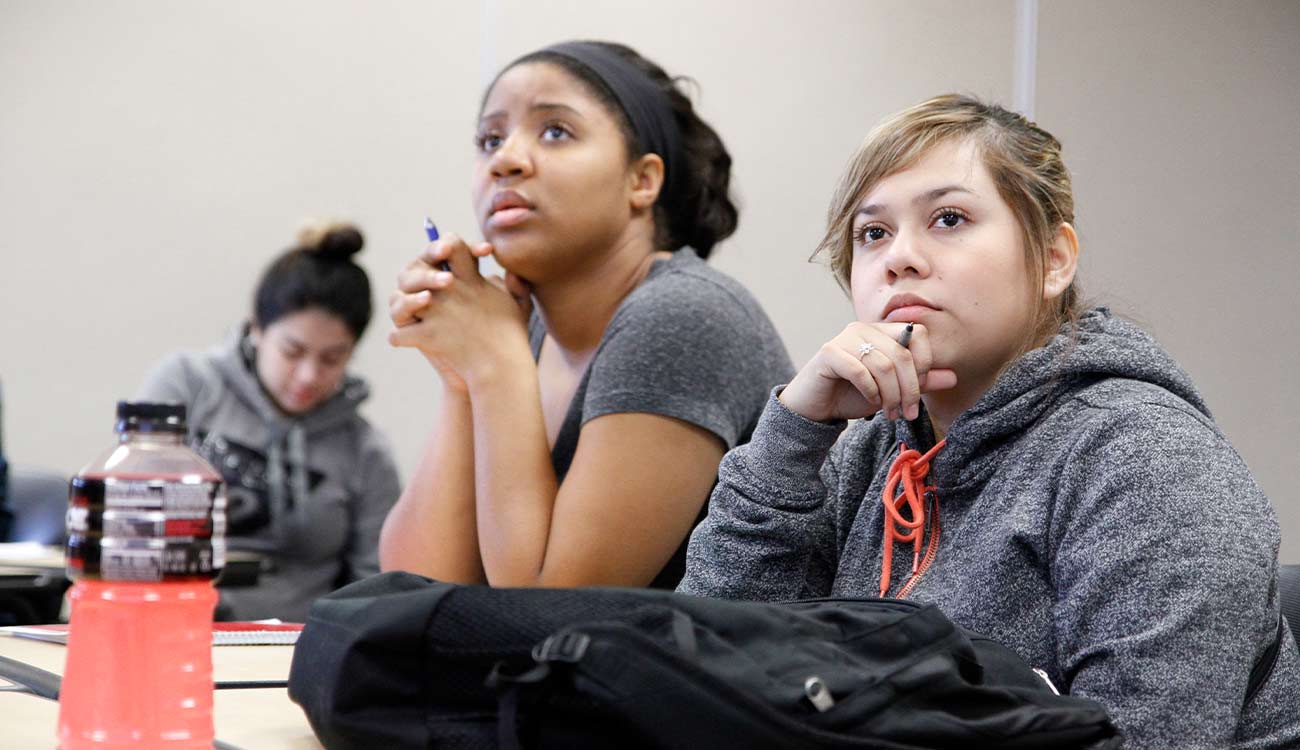For years, Yakima Valley College’s English department has been actively engaged in equity work on campus. Over the past two years, however, faculty members have extended those efforts even further to reshape the teaching and learning in their courses.
The effort is grounded in better serving Yakima Valley’s diverse community — celebrating and honoring the linguistic practices and skills that students bring with them to the college in order to support their academic success.
The department’s recent work has grown out of a grant received by the State Board for Community and Technical Colleges to target longstanding issues, common across the country, of inequity and racism in English curricula and outcomes.
English Instructor Travis Margoni, a member of the core statewide team, noted that English instruction has long marginalized diverse communities by attempting to create a “correct” way of speaking and communicating.
“In reality, we live in a diverse world with many languages, and English has many of its own dialects, so we want to acknowledge this in our instruction and see the assets students bring to our classrooms,” Margoni said.
With the goal of helping students meet the learning outcomes for their courses and pass them, English faculty identified a key problem: not actively including students in the process of assessment. To address that problem, faculty in the department have worked to develop practices to better collaborate with students in the process of assessment, examining the role of white supremacy/Habits of White Language (HOWL), and support students to experience collaboration, empowerment and autonomy in English classes.
It’s the beginning of a shift in the culture of the English department to include intentional equitable, culturally responsive and antiracist practices that build on other YVC efforts to advance equity in teaching and learning. Recent efforts include the ESCALA professional learning initiative, Universal Design for Equity and Accountability in Learning grant, and a change in how new students are placed in writing courses.
Along with developing teaching resources that help faculty incorporate those practices, the department created a tool to help instructors reflect on their teaching through an equity and antiracist lens and generate ideas for teaching/assessment interventions.
“I can teach and assess in ways that seem more authentic, compassionate and useful instead of feeling the pressure to serve as a ‘gatekeeper’.”
— Carolyn Calhoon-Dillahunt
Among the interventions workshopped and implemented in the past year were:
- Collaborative feedback, rubric and other assessment practices with students
- Reading and writing assignments to help students critique white supremacy, white language supremacy and habits of white language in the course outcomes, curriculum and beyond
- Video feedback as a dialogic tool
- Student self-assessment practices
- Contract, labor and ungrading practices
“Although the interventions were distinct, student comments revealed many common themes,” said English Instructor Carolyn Calhoon-Dillahunt. “For instance, students commented about feeling motivated, feeling confident, feeling capable, feeling affirmed, feeling more freedom and/or agency, being willing to take risks and feeling engaged in and aware of their learning.”
Assignments built with antiracism in mind can be as unique as the English instructors around the state. For example, Margoni said students in his courses might interrogate the practices of code switching and code meshing, adjusting tone and style for audiences and integrating informal with academic or professional writing.
“We’ll identify different rhetorical situations where language and tone are judged in different ways and ask why that happens,” he said. “I want students to have the skills to identify different expectations for communication, and I want them to understand how habits of white language have been privileged in many spaces.”
To measure the impact on student learning, the department has used a mixture of surveys, self-assessment reflections and rubrics to gather qualitative data as well as surveys and measured student success data on specific assignments and in grades to gather quantitative data.
In the coming years, the English department plans to continue its work, collectively workshopping practices and sharing with YVC faculty in other departments to build a more inclusive environment for learning.
“Once you’ve engaged in this type of work, it’s hard not to remain compelled as you see the results,” said Calhoon-Dillahunt. “Students respond positively: their performance often improves; their attitudes are better; their relationships with the teacher, other students and the curriculum often improves.”
Moreover, she noted that her own teaching has improved as she works more intentionally and transparently.
“That makes me a more effective teacher, and that is gratifying,” Calhoon-Dillahunt said. “I can teach and assess in ways that seem more authentic, compassionate and useful instead of feeling the pressure to serve as a ‘gatekeeper’.”
